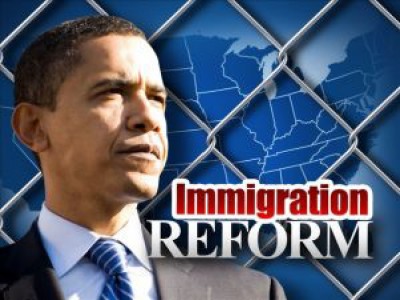aNewDomain — Silicon Valley would not exist without foreign presence and entrepreneurship. The number of H-1b visa-employed workers in the tech industry is critical to keep innovation in the U.S. relevant. President Barack Obama made a wise call recently by talking about expanding the number of long-term work visas issued. There is a serious demand for highly-skilled workers in the tech field, and an accessible visa process is key to a long-term start-up strategy. But Silicon Valley CEOs are still unhappy with the pace and inefficiencies of the visa processes.
Obama On Tech
Analysis of the tech immigration overhaul:
According to a report in the Washington Post, Obama will use an executive order to expand the little-known Optional Practical Training program, which has allowed a large number of foreign students studying in the United States to take jobs in the tech industry while in school and after graduation. Industry heavyweights like Google and Microsoft have long been pushing Washington to allow more students who work in the science, technology, engineering, and mathematics industries to qualify for the program and to enable them to remain in the United States longer than the current maximum of 29 months.”

Image Credit: www.scsuntimes.com
The Financial Time says that immigration reforms fail to satisfy Silicon Valley.
“For years Republicans and Democrats have shown the same amount of sincerity and said that they want to fix the highly-skilled visa system – and a decade later it’s not done.”
Global Diversity
Indians, Chinese, British and Israelis form the core of research and development labs in the San Francisco Bay Area. These workers create new entrepreneurial trends. Consider: Russian immigration to Israel was a pivotal factor in making high-tech business in Israel so vibrant. The level of mathematics in Russian high school education gives young people a head start for solving programming challenges, and countries like Israel later rely upon these workers.
Obama’s new initiative (the details of which are still unclear) can hopefully authorize green cards for the best and the brightest of the global creative class. This will help ensure the future of United States technology, which will boost economy, commerce and overall employment. International tech will benefit as a result of this as well. Canadian and European tech hubs are waiting to grab the applicants for American visas.
The Tech Industry is Upset
A southern California radio blogger said:
The order couldn’t do what tech companies most want: to increase the quota of H1-B visas allowing U.S. companies to hire highly skilled foreign workers. Changing the quota from its current limit of 65,000 workers a year requires congressional action, which could be further delayed because of Republican opposition to Obama’s order.”
Republicans may even impeach Obama for this executive order … such action would not surprise me. The full fix might not be present yet, but at least Obama is trying to address the issue. The secret sauce for creativity in the Valley is still multinational diversity. Twentieth century immigration rules no longer apply to the web economy, and they really shouldn’t.
It’s a myth that H-1B visa-carrying workers are less skilled than U.S. workers. Just the reverse is true. Check out the infographic below.
For aNewDomain, I’m David Michaelis.
Featured Image: “Chicago Immigration Protest May 1, 2006 ” by jvoves via Flickr Creative Commons














